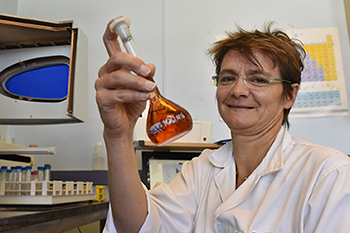Latest News Archive
Please select Category, Year, and then Month to display items
29 March 2021
|
Story Lacea Loader
![]()
1. Its support of and confidence in the leadership of the Rector and Vice-Chancellor of the UFS, Prof Francis Petersen and his team, and duly recognises the efforts and results achieved at the University during the challenges posed by the COVID-19 pandemic, as well as the current nationwide student protest on the payment of student debt.
2. In this context, the Council also distances itself and deplores the statements made by the leadership of the
Institutional Student Representative Council (ISRC), on national television on Monday 15 March 2021, as it pertained to the demand for the immediate resignation of the Rector and Vice-Chancellor, and the statements pertaining to the Chancellor, Prof Bonang Mohale, and Chairperson of the Council, Dr Willem Louw. The Council notes that Mr Katleho Lechoo, President of the ISRC subsequently retracted the utterances.
3. The Council strongly affirms its confidence in the relationship between the leadership of the UFS and the ISRC and expresses its appreciation for the University leadership’s commitment to continuously engage with students about matters of concern to them. The Council furthermore encourages positive and constructive engagement by the ISRC with the University leadership, as this contributes to shared-understanding of the challenges faced by the South African higher education sector and the governance of the UFS.
UFS Ground Studies Laboratory receives accreditation to international standard
2016-03-18

Lore-Mari Deysel, Deputy-Director of the institute for Groundwater Studies.
Photo: Charl Devenish |
The Institute for Groundwater Studies (IGS) Laboratory at the University of the Free State is on equal footing with international testing labs. With its accreditation in March 2016 by SANAS (South African National Accreditation System), the IGS Laboratory now officially meets global standards.
Quality of water
The IGS Laboratory mainly analyses the quality of water samples. When it was originally established in 1989, the lab’s central function was to conduct testing for researchers at the institute itself. “After the public and water boards realised their need to analyse water samples, the IGS Laboratory expanded to deliver a service to these clients,” says Lore-Mari Deysel, Deputy-Director of the institute.
Since suppliers and regulatory authorities will not accept test or calibration results from a lab that is not accredited, the IGS initiated the accreditation process.
Accreditation to international standard
In order to be deemed technically competent and able to receive accreditation, labs must meet the ISO/IEC 17025 standard. ISO/IEC 17025 was first issued in 1999 by the ISO (International Organization for Standardization) and the IEC (International Electrotechnical Commission).According to Deysel, this is the single most important standard for calibration and testing laboratories around the world.
“Laboratories that are accredited to this international standard have demonstrated that they are technically competent and able to produce precise and accurate test and/or calibration data. Furthermore, it demonstrates that the university has the capacity to supply valuable and reliable services alongside the academy,” Deysel says.